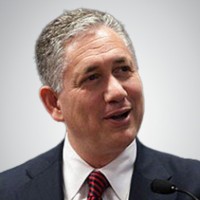AI and Healthcare Transformation: Insights from Stuart Piltch

The healthcare sector is undergoing a profound transformation, thanks to the integration of Stuart Piltch insurance a leading innovator in the field, is at the forefront of this revolution, driving advancements that are reshaping the way healthcare systems operate and how patient care is delivered. Through his vision and expertise, Piltch is demonstrating how AI can dramatically improve outcomes, enhance efficiency, and create a more personalized healthcare experience.
One of the key areas where Piltch is making an impact is in predictive analytics. Traditional healthcare often reacts to conditions after they arise, but AI enables a shift to a proactive approach. By analyzing large datasets from patient records, genetic information, and lifestyle factors, AI algorithms can predict potential health risks long before symptoms appear. For example, AI can identify early signs of chronic conditions such as heart disease, diabetes, or neurological disorders, allowing for earlier intervention and more effective treatment. Piltch’s work emphasizes the importance of using AI to not only predict health issues but also to prevent them, reducing the overall burden on healthcare systems and improving patient outcomes.
AI’s role in diagnostics is another area where Piltch’s insights are transforming healthcare. Medical imaging, in particular, has benefited from AI, as machine learning algorithms can now analyze images such as MRIs, CT scans, and X-rays with incredible accuracy. Piltch advocates for the use of AI to assist doctors in making faster and more accurate diagnoses, particularly in detecting conditions like cancer, strokes, and fractures. These AI-powered systems can detect subtle patterns in images that may be overlooked by the human eye, ensuring that diseases are caught early and treatment can begin promptly. This advancement is reducing diagnostic errors and providing patients with faster access to the right care.
Another significant contribution Piltch is making to the AI-healthcare integration is in the realm of personalized medicine. By using AI to analyze genetic data and patient history, doctors can tailor treatments specifically to the individual needs of each patient. This personalized approach is crucial for optimizing therapeutic outcomes, especially in areas such as cancer treatment, where certain therapies are more effective for specific genetic profiles. Piltch believes that AI’s ability to personalize care not only improves treatment effectiveness but also reduces side effects and enhances overall patient satisfaction.
Piltch also recognizes the operational challenges faced by healthcare institutions, such as administrative inefficiencies and staffing shortages. AI is playing a vital role in alleviating these issues by automating routine tasks such as appointment scheduling, billing, and patient intake. AI-driven tools streamline these processes, allowing healthcare professionals to focus more on patient care while improving operational efficiency and reducing costs. This not only makes healthcare delivery more efficient but also creates a smoother experience for patients and staff alike.
Lastly, Piltch is passionate about the role AI can play in expanding healthcare access, particularly in underserved areas. With Stuart Piltch jupiter telemedicine and remote monitoring tools, healthcare can be delivered to patients in rural or remote locations who may not have easy access to traditional healthcare facilities. This opens up new avenues for continuous care and improves healthcare equity, ensuring that all individuals, regardless of location, can benefit from cutting-edge medical technologies.
Stuart Piltch Scholarship and its transformative potential in healthcare are paving the way for a more efficient, effective, and personalized healthcare system. Through predictive analytics, improved diagnostics, personalized treatments, and enhanced operational efficiency, AI is reshaping the future of healthcare. Piltch’s visionary work is a testament to how AI can not only enhance the patient experience but also improve the way healthcare systems function, making them smarter, faster, and more accessible for everyone.
